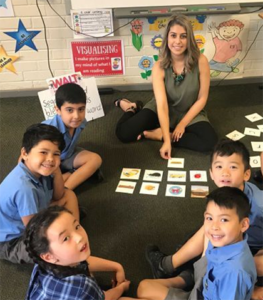Migrant kids excelling at school
Children of migrants are doing better than English-speaking students in writing and spelling, according to the latest NAPLAN results.
The results show 95 per cent of migrant students in Year 5 reached the minimum standard in writing, compared to 93 per cent of children who speak English at home.
 Children from migrant backgrounds also performed better in spelling, grammar and punctuation in every grade
Children from migrant backgrounds also performed better in spelling, grammar and punctuation in every grade
The Education Minister conceded more needed to be done to improve results across the board. Education experts have blamed a failure to attract quality teachers to the regions and have argued The National Minimum Standard is too low.
Migrant children topped the nation in Year 3 spelling while aboriginal and Torres Strait Islander children improved their NAPLAN results significantly over the past 10 years.
But this year’s national picture is mixed, with an overall decline in writing and reading scores being seen as a “wake-up call”.
Hundreds of children begin their first year of primary school in Australia speaking limited English, and in some cases no English at all.
But by Year 3 they are outperforming native English speakers in spelling in New South Wales and Tasmania.
In most other states children with a language background other than English are performing on par with native English speakers.
Federal Education Minister Simon Birmingham said the NAPLAN results across the nation “should serve as a warning to educators and policy makers”.
Writing scores have declined on average and reading gains have flat-lined among high school students.
There are also stark differences between boys’ and girls’ literacy results, with girls outperforming boys by a sizeable margin.
Nationally 93.8 per cent of girls are achieving at national minimum standards in reading, compared to 89.6 per cent of boys.












